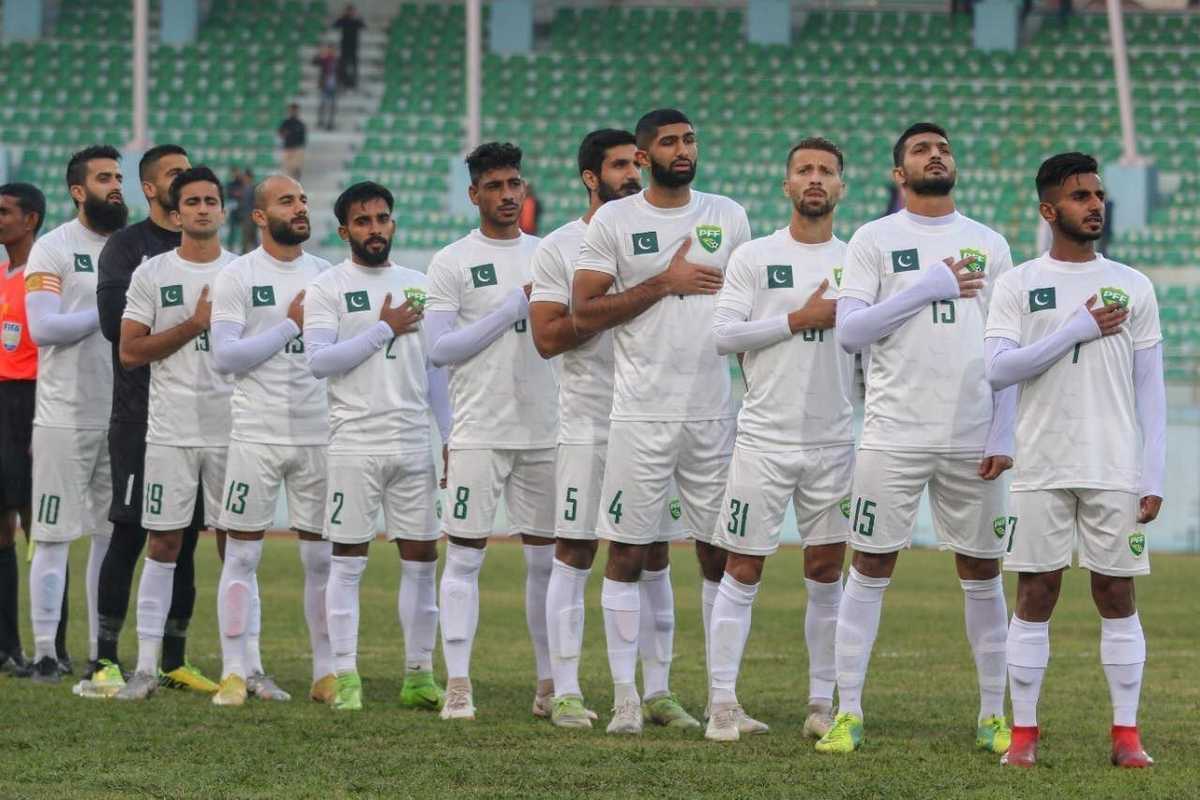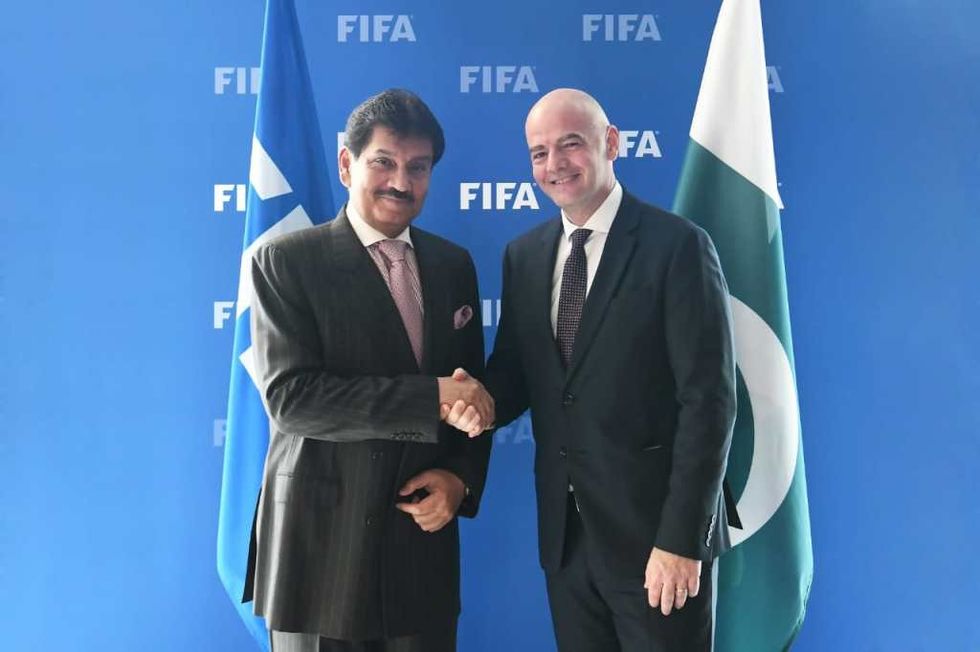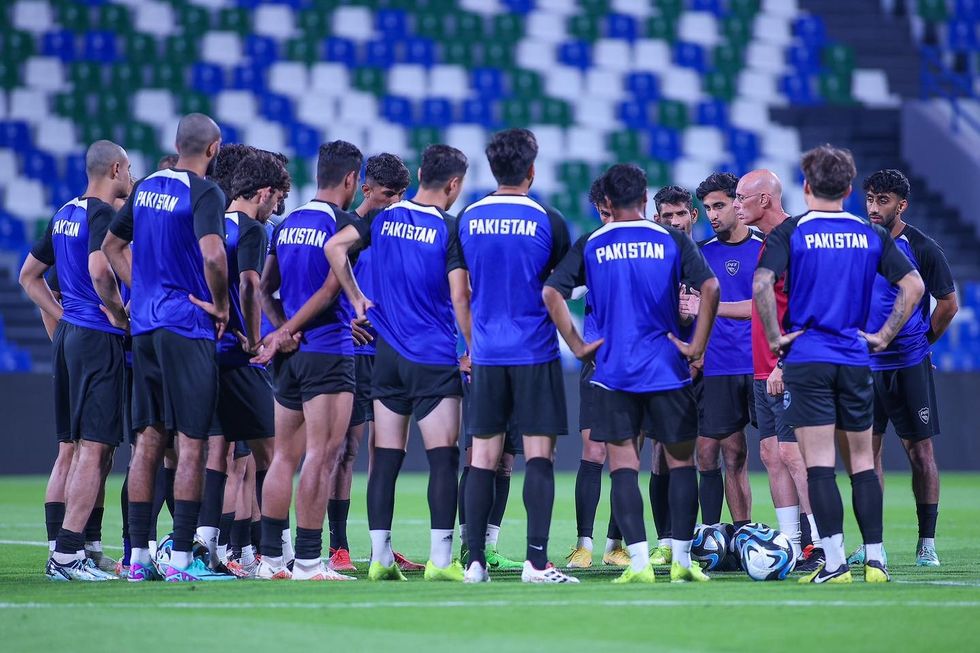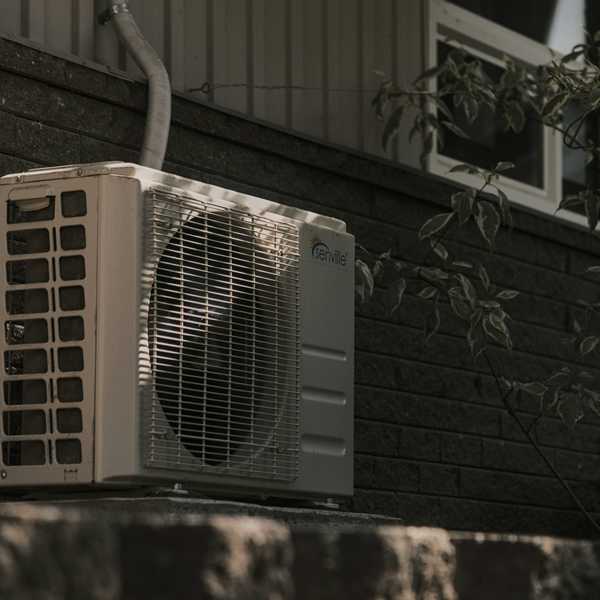Why Pakistan football has failed to flourish despite the sport's growing popularity in the country
There are a thousand different reasons why the beautiful game paints a bleak picture in a sports-mad country. But primarily it’s power struggles, poor management and allegations of corruption within the national set-up which have caused the greatest harm.

Alam Zeb Safi
Correspondent Nukta
Alam Zeb Safi is a sports journalist, having served in the capacity for 25 years. Covered so many international sports events on foreign soil also including England and Australia.

Pakistan men's football team stands for the national anthem before a match.
PFF
Over the years, Pakistan has made a name for itself when it comes to manufacturing high-quality footballs but the country is yet to perfect the art of playing with it due to a plethora of issues on and off the field.
It took Pakistan’s men’s team 34 years to register their first-ever win in FIFA World Cup Qualifiers — a feat which the Shaheens achieved by edging Cambodia 1-0 in October last year. Although the win was a breath of fresh air for football in Pakistan, it doesn’t magically resolve the issues that have long plagued the game in the country.
Instability
Pakistani football has been in turmoil since the early 1990s due to infighting, power struggles, poor management and allegations of corruption.
Usually, seasoned politicians have been in charge of the Pakistan Football Federation (PFF), ever since it became a full member of FIFA in 1948, but most of them didn’t have the vision needed for the development of football.
For almost three decades, from 1990 to 2018, only two politicians, including Mian Muhammad Azhar and Faisal Saleh Hayat, were at the helm which had a lasting impact on where Pakistan football stands today.
During the initial four years of Azhar’s 13-year tenure, his secretary Hafiz Salman Butt took some commendable steps, which included a proper league-style National Football Championship coupled with sponsorship and live television broadcast, to put Pakistan football on the right track.
However, after Butt was axed and later banned due to differences with Azhar, Pakistan football was once again marred by incompetence before Faisal Saleh Hayat ascended to the throne in 2003.
Hayat remained PFF president for 15 long years but he couldn’t do justice to his tenure. During his rule, football in Pakistan took a turn for the worse and it entered into a chaotic phase which still exists.

Top-tier and second-tier leagues, despite running consistently for 10 years under Hayat, were just a routine exercise with no visible improvement. Even Pakistan’s former coach George Kottán termed it as a “cheap” exercise since the leagues had failed to produce the quality needed for national duty.
Pakistan did well in the South Asian Games, winning gold medals in the 2004 and 2006 editions. But frequent coaching changes ensured that Pakistan slipped from 160s in the FIFA Men’s Rankings to 200s by the time Hayat’s reign ended.
On the administrative front, Hayat focused more on improving his stature at the Asian Football Confederation (AFC) while also maintaining a tight grip on his PFF Presidency through political affiliations.
The PFF marketing strategy also failed to bring in any worthwhile investment and it only relied on the AFC and FIFA’s funding, which was not enough to strengthen the country’s football structure.
Hayat was also at the center of various corruption allegations involving PFF as well as a long legal battle at the Lahore High Court (LHC) after the controversial presidential elections in 2015.
Normalization. What normalization?
Football in Pakistan started suffering a lot from 2015 due to internal rift and legal suits. Even FIFA twice placed a ban on PFF in 2017 and 2021 after failure to conduct free and fair elections and third-party interference.
FIFA also installed a Normalization Committee (NC) in 2019 with Hamza Khan as its chairman. It was given the task to hold the PFF elections within nine months but to date, only elections at the district and provincial level have been completed and those too are highly controversial as many newly-formed clubs were given voting rights.
Hamza resigned in December 2020 and FIFA reconstituted the NC in January 2021 by installing Canada-based Haroon Malik as its chairman with Shahid Khokhar, Saud Hashmi and Haris Azmat as its members.
“The normalization committee doesn’t have the power to go against the constitution of the PFF but all the work they have done so far related to district election is against that constitution. This is why people are now going to court against them,” the former Punjab Football Association (PFA) President, Sardar Naveed Haider Khan, told Nukta.
“I think PFF NC and Haroon Malik have failed and if AFC and FIFA still don’t take any action against them, I think it will be extremely unfair to Pakistan football,” he added.
However, PFF NC member Shahid Khokhar disagrees.
“Practically the [Haroon Malik-led] NC has been in charge for two years and I’m proud of the work we have done during that time. Things had gone from bad to worse in the last two decades but we have done a fairly good job to get things back on track,” Khokhar told this correspondent.
“We are trying to ensure that a transparent electoral process takes place in Pakistan and I’m confident that we will be able to complete it well before our mandate ends and hand over the reins to an elected body,” he added.
Impact on players
From the spring of 2019 to the summer of 2019, when the NC was installed, was a period of inactivity for Pakistan football. It was also a period of hardship for players and their families.
Things have barely improved as long-term projects like holding a much-needed professional league on a regular basis remain out of reach for NC, which can just handle day-to-day football affairs.
“Whenever we get an extension from FIFA, it is only for a period that is absolutely necessary. This is why I think that a long-term project, like a league, might not match that objective,” Khokhar said when asked about the absence of a league in recent years.
A whole generation of players was wasted
Additionally, FIFA’s ban also ensured that Pakistan lost a complete generation of players. Those who were stars in 2015, didn’t play competitive football for a major chunk of their peak years. Pakistan also missed many international events both at the senior and age-group levels and also in women's football before NC started sending teams for international commitments. However, such trips were few and far between due to limited funds.
Currently, the national players and support staff have not been paid for the majority of the tournaments they have participated in since 2023 after FIFA stopped releasing funds.
“I don’t know if I should comment on the reason behind the delay in funds from FIFA but I can assure you that we are in touch with them and hopefully the funds will be released soon,” Khokhar said.
One positive thing in NC’s period was Pakistan’s maiden progression to the second round of the 2026 FIFA World Cup Qualifiers after beating Cambodia 1-0 on aggregate. However, top teams like Saudi Arabia, Jordan and Tajikistan proved too strong for Pakistan in the second round. It was still a great learning curve for the players who featured in those matches. The credit goes to English coach Stephen Constantine, who was instrumental in ensuring that Pakistan made it into the second round of the Qualifiers.

The way forward
Going forward, the priority should be to ensure that PFF elections are conducted within the stipulated period until December 15, 2024, so that NC is replaced by an elected body.
One of the first things that the elected PFF body should do, when it takes charge, is amend the constitution, with the assistance of FIFA, so that issues like voting rights and term limits are properly addressed while also ensuring greater transparency.
A proper club-based professional league, which includes relegation and promotion, something which is part and parcel of all the top footballing nations all over the globe, is also the need of the hour so that players get to play every week rather than only turning up for camps before a major international tournament.
The PFF also needs to rope in sponsors so that it is not solely reliant on FIFA and AFC funds to conduct its affairs. The new body needs to cash in on the growing interest in football in Pakistan which was evident from the huge support the team got during the FIFA World Cup 2026 qualifying matches in Islamabad.
Meanwhile, the government should also support PFF in terms of infrastructure so that there are multiple venues in Pakistan which can host international football matches. Currently, only the Jinnah Stadium in Islamabad meets FIFA’s standards.
Reviving the FIFA Goal Projects could also be a step in the right direction. Barring the controversial Peshawar Goal Project, seven Goal Projects including Karachi, Jacobabad, Sukkur, Khanewal, Abbottabad, Quetta and Lahore were built in the past. However, only Lahore, which houses the PFF headquarters, Abbottabad and Quetta remain functional. The buildings of the rest of the projects have turned rusty and are in extremely bad shape. Each project came at a cost of Rs80 million.
PFF desperately needs professionals rather than politicians and bureaucrats treating it as a profitable venture due to the perks and privileges associated with it.
Pakistan football has faced a lot of difficulties in the past but to forge a better future, it must establish a comprehensive system so that the country’s footballers can flourish.







Comments
See what people are discussing